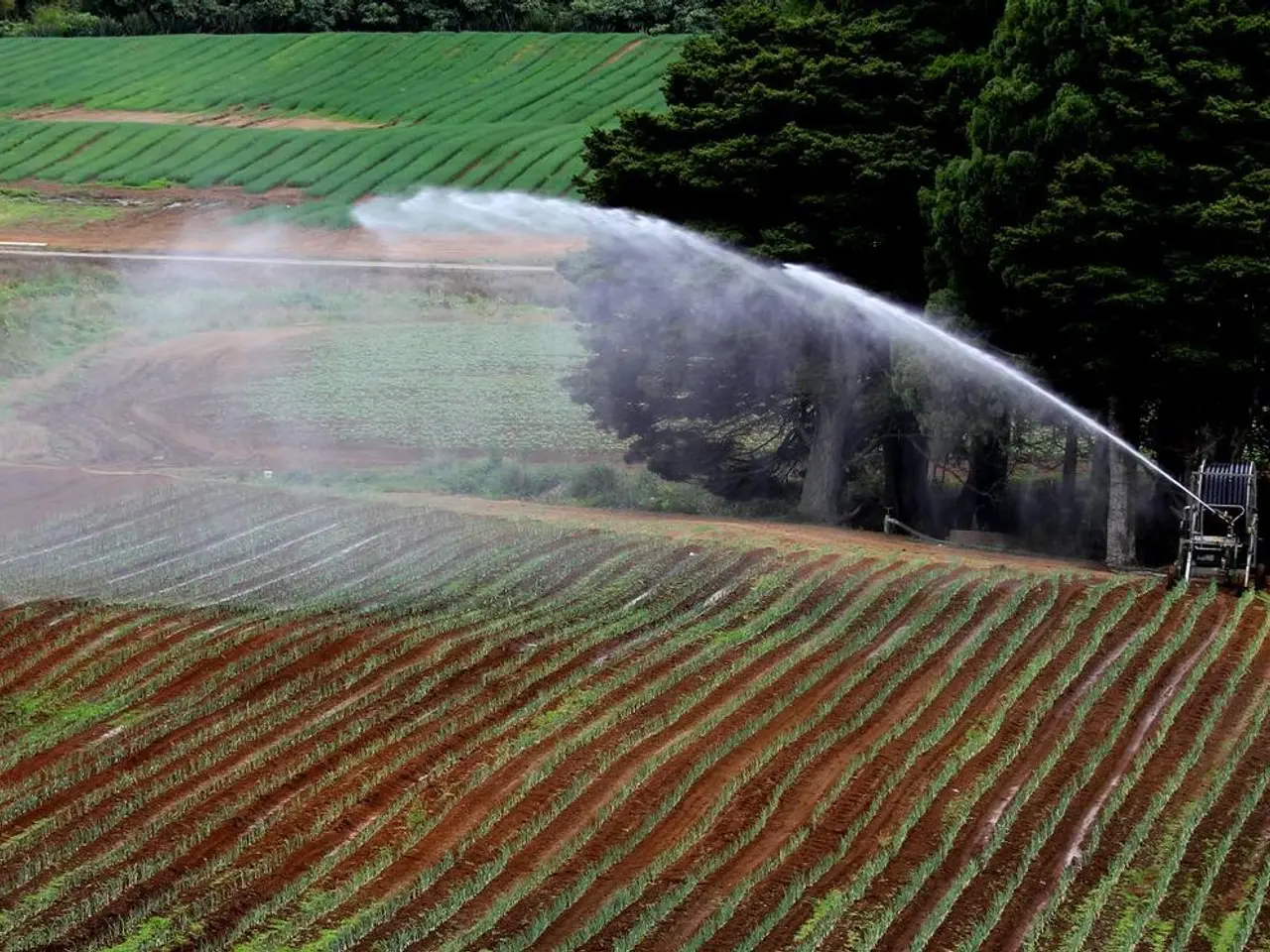Three Strategies for Crafting a Long-Term Agritech Initiative
Clayton County Public Schools in Georgia is revolutionising education with an innovative agricultural technology initiative. The goal is to simulate a real-world business, with students creating a business plan to sustain the program.
At the helm of this transformation is Trina Reaves, the Director of STEM and Innovation. Recognised for her Best Overall Implementation of Technology Award at the Southeast Regional Leadership Summit, Reaves is spearheading the project with a focus on community engagement, industry partnerships, and securing grants and donations.
The program addresses a significant issue in the county - food deserts. By offering students the opportunity to grow backyard produce, the initiative aims to contribute to local food supply and education. Each school in the district is designing a unique program, with Forest Park High School leading the way with their Agritech Solutions initiative.
Forest Park High School houses a FarmBot, a tech-helper that guides planting, watering, and other key tasks for a successful crop. The school's aquaponics labs, supported by the science department in collaboration with the Georgia Aquarium, further enhance the learning environment.
The initiative extends beyond agriculture, touching other Career, Technical and Education (CTE) pathways. Drew High School, for example, has a culinary CTE pathway where a teacher uses several aeroponic towers for ingredients in her class.
Oliver Elementary School also participates, with their FarmBot set up with help from Georgia Tech's engineers. The students gain practical experience not only in agriculture but also in promoting and securing sales as part of the initiative.
The ultimate aim is to raise production to the point where seedlings can be sold to parents and the community. A September Farm to Fork event is planned, where schools will bring their first crop of the season and hold a farmer's market.
The success of the program lies in its approach, which engages community and district leadership early, integrates STEM principles, uses hands-on, experiential learning environments, leverages partnerships, provides professional development for teachers, incorporates culturally relevant and local agricultural issues, utilises data-driven evaluation, and promotes innovation and student-driven projects.
This innovative agricultural technology initiative is a testament to Clayton County Public Schools' commitment to providing students with real-world, engaging, and meaningful learning experiences.
- Trina Reaves, the Director of STEM and Innovation in Clayton County Public Schools, has been instrumental in the school's revolutionary educational initiative focused on agricultural technology.
- The program's primary objective is to create a business-like environment, where students develop a business plan to sustain the project and address food deserts in the county.
- The initiative encompasses various aspects of STEM, with a focus on community engagement, industry partnerships, and securing grants and donations.
- Forest Park High School, spearheading the project, utilizes a FarmBot for planting, watering, and other necessary tasks in their Agritech Solutions initiative.
- The school's aquaponics labs, a collaboration between the science department and the Georgia Aquarium, add further depth to the learning environment.
- The program extends beyond agriculture, permeating other Career, Technical and Education (CTE) pathways, such as culinary arts at Drew High School.
- Oliver Elementary School is also involved, with students gaining practical experience in agriculture and sales through the initiative.
- The goal is to increase production to the point where seedlings can be sold to parents and the community, with a Farm to Fork event planned for September.
- The success of the program hinges on its comprehensive approach, which integrates STEM principles, hands-on, experiential learning environments, data-driven evaluation, and student-driven projects.
- By engaging community and district leadership early, embracing technology, and incorporating culturally relevant and local agricultural issues, the program fosters a meaningful and engaging learning experience.
- In addition to agriculture, the initiative includes learning opportunities in areas like health and wellness, fitness and exercise, climate change, skin care, nutrition, and healthy diets.
- The program also touches upon environmental science, finance, and entrepreneurship, with students learning about business planning, environmental conservation, and financial management.
- In the realm of food and drink, students at some schools are learning cooking skills and strategies for creating healthy meals, while home and garden courses teach students about sustainable living and gardening practices.
- The school district is using online education and lifelong learning platforms to supplement the program, including data and cloud computing for data analysis and decision-making in the agricultural business.
- This innovative agricultural technology initiative highlights Clayton County Public Schools' dedication to providing students with a well-rounded education, fostering an interest in sustainability, business, technology, and the wider world.




